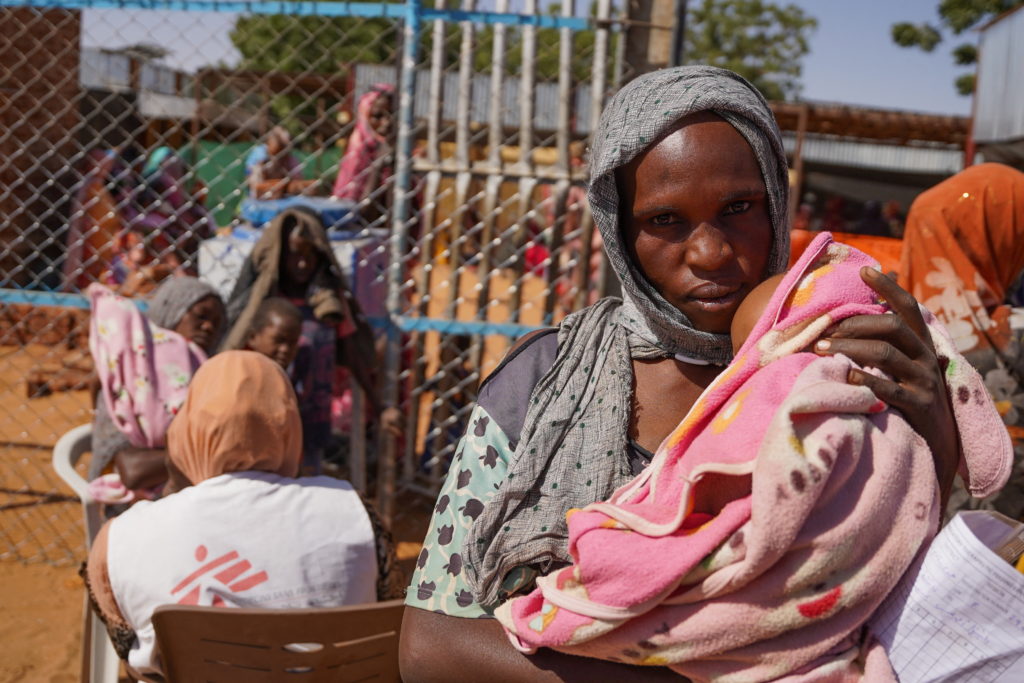Sudan's El-Fasher Faces Catastrophic Child Starvation Amidst Siege, UNICEF Warns
Over 260,000 civilians, including 130,000 children, are trapped in Sudan's besieged el-Fasher, facing severe malnutrition and aid cut-offs, prompting urgent warnings from UNICEF.
Subscribe to unlock this story
We really don't like cutting you off, but you've reached your monthly limit. At just $5/month, subscriptions are how we keep this project going. Start your free 7-day trial today!
Get StartedHave an account? Sign in
Overview
- The ongoing war in Sudan, which began in April 2023, has created the world's largest humanitarian crisis, displacing over 14 million people and causing widespread famine and disease outbreaks.
- El-Fasher, a city in Sudan's western region, is currently under siege by a paramilitary group, trapping approximately 260,000 civilians, half of whom are children, in desperate conditions.
- Aid has been cut off from el-Fasher for over 16 months, leading to severe acute malnutrition among 6,000 children, placing them at high risk of death, as highlighted by UNICEF.
- At least 600,000 people have been displaced from el-Fasher and surrounding camps, exacerbating the crisis and contributing to starvation among children in the besieged city.
- UNICEF is urgently calling on Sudan's government and all parties involved to ensure safe and unimpeded humanitarian access to reach the suffering children across Sudan, particularly in el-Fasher.
Report issue

Read both sides in 5 minutes each day
Analysis
Center-leaning sources frame the Rapid Support Forces (RSF) as the primary antagonist in the El-Fasher humanitarian crisis. They consistently highlight the RSF's role in imposing the siege and blocking aid, amplifying UNICEF's urgent warnings and emotional language. This editorial choice focuses the narrative on the severe suffering of children and the RSF's responsibility for exacerbating it, without presenting counter-perspectives.
Articles (3)
Center (1)
FAQ
El-Fasher is under siege by the Rapid Support Forces (RSF) militia, with over 260,000 civilians trapped, including around 130,000 children. The city has been cut off from humanitarian aid for over 16 months, leading to severe acute malnutrition affecting approximately 6,000 children and causing widespread famine and starvation. The situation is exacerbated by ongoing attacks, high food prices, lack of access to healthcare, and increasing disease outbreaks such as cholera.
The siege and repeated attacks on El-Fasher and surrounding displacement camps are primarily conducted by the Rapid Support Forces (RSF) militia, which has been fighting against Sudan's military government forces for control of the region. The RSF has been accused of committing serious violations of international humanitarian law, including attacks on civilians and displacement camps.
Children in El-Fasher are facing catastrophic conditions, with over 6,000 suffering from severe acute malnutrition, placing them at immediate risk of death. Additionally, more than 825,000 children in the area face malnutrition and around 640,000 are at risk of contracting cholera due to the siege's impact on sanitation and health services.
UNICEF and other international bodies have urgently called on Sudan's government and all parties involved to allow safe and unimpeded humanitarian access to El-Fasher to deliver lifesaving food, medicine, and aid. There have also been appeals for humanitarian pauses in conflict to enable aid delivery and protection of civilians, especially vulnerable groups such as women and children.
Alongside the siege, the region is experiencing rising famine confirmed in nearby internally displaced person (IDP) camps since August 2024, increasing cholera outbreaks, displacement of at least 600,000 people, and high rates of conflict-related sexual violence affecting women and girls. These compounded crises worsen the overall humanitarian emergency in North Darfur.
History
- This story does not have any previous versions.


